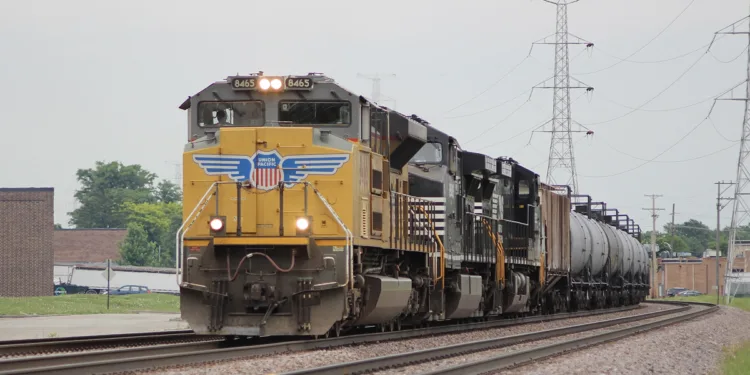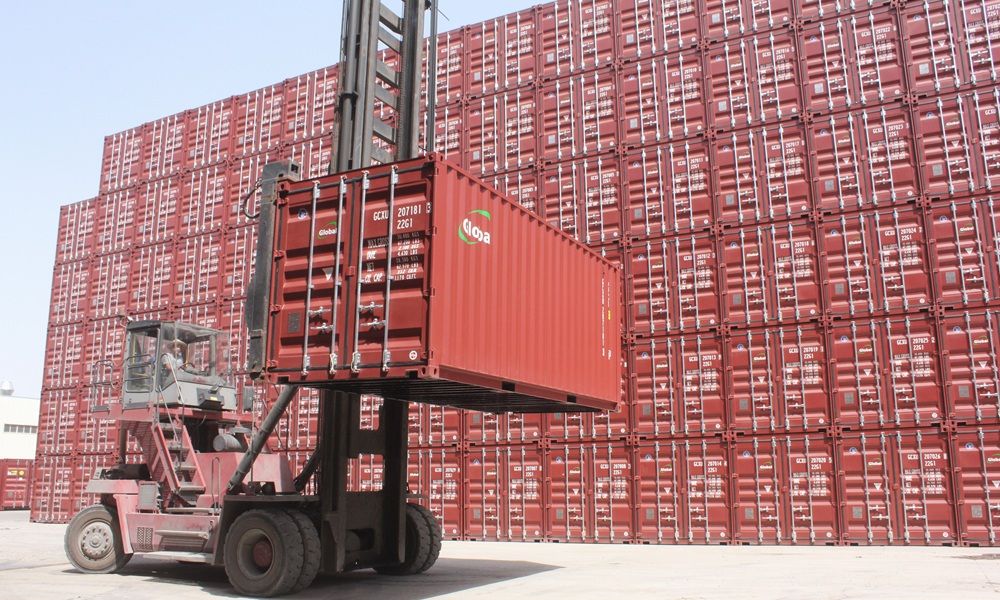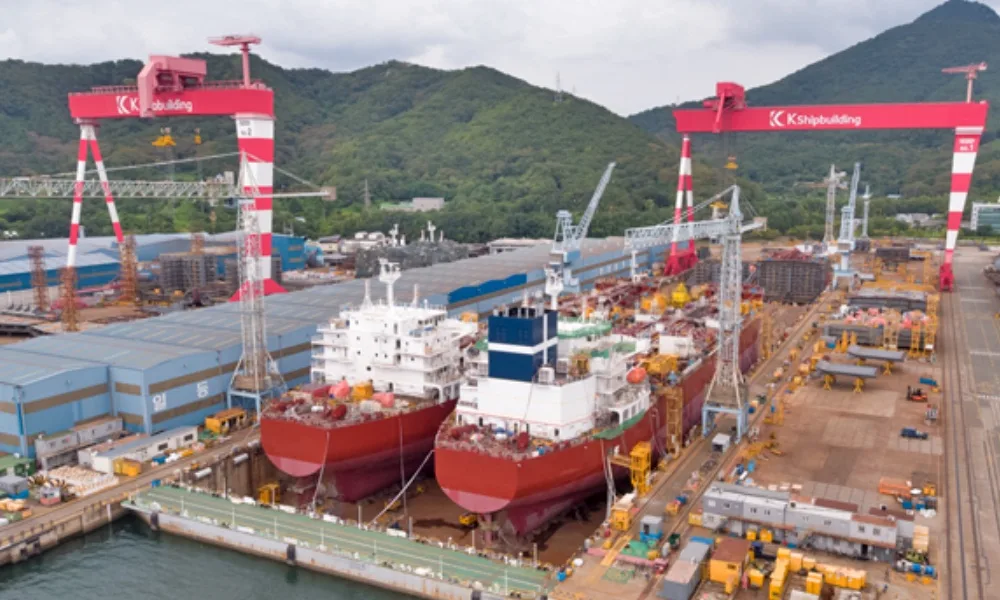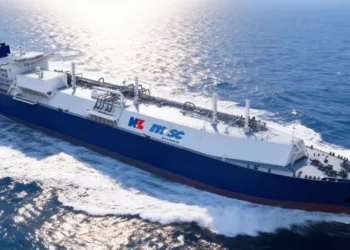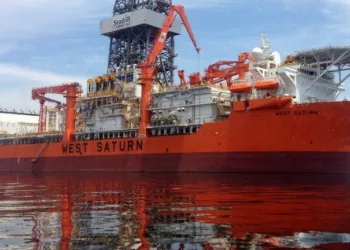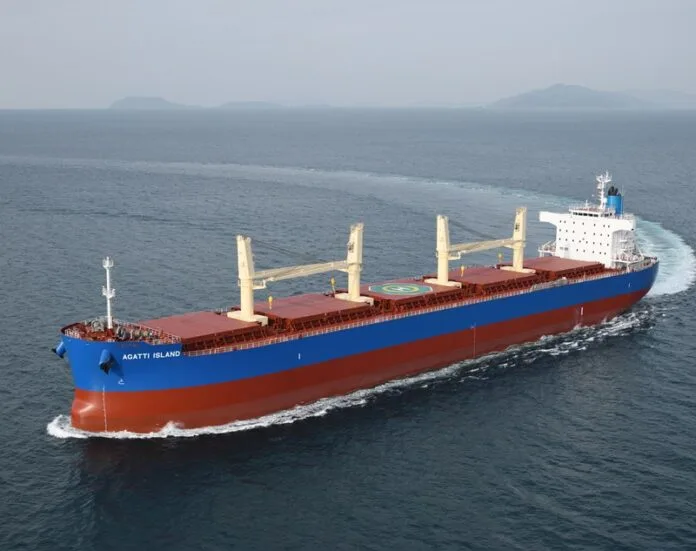Eager to tie the knot, Union Pacific and Norfolk Southern have asked federal regulators for a faster review of their proposed transcontinental merger, Trains has learned.
The Surface Transportation Board in September proposed a roughly 390-day schedule to review the railroads’ $85 billion deal. The calendar includes wiggle room that would allow the board to adjust the timing of public hearings, its final decision, and the date the decision would become effective.
But UP (NYSE: UNP) and NS (NYSE: NSC), in an Oct. 20 regulatory filing, asked the STB to shave 45 days off the review process.
Teams at both railroads have been working on the merger application, which is expected to be filed in late November or early December.
“Their work has confirmed that, because of the merger’s end-to-end nature, the transaction does not present any complex competitive or operating issues,” UP and NS said in their filing, which has not been posted on the STB website due to the ongoing federal government shutdown that began on Oct. 1.
A 345-day filing-to-decision schedule, the railroads argue, would be in line with the STB’s drive to be more efficient under Chairman Patrick Fuchs — and with the Trump administration’s goal of streamlining regulations that stand in the way of economic development and infrastructure projects.
UP CEO Jim Vena has said the merger is so pro-competitive that there’s no reason for the STB to spend a year gathering information.
The railroads propose condensing comment and rebuttal periods. They also want the board to set firm dates for public hearings and the close of the record, the timing of a final decision, and its effective date.
Mobilizing Shippers
Meanwhile, rival railroads have stepped up their opposition to the UP-NS merger. Canadian National (NYSE: CNI) and Canadian Pacific Kansas City (NYSE: CP) have both launched web pages (CN, CPKC) that encourage shippers to oppose the deal, joining BNSF Railway, owned by Berkshire Hathaway (NYSE: BRK-B) which was the first to do so.
Their argument: The merger is not necessary and is not in the best interests of shippers or the U.S. economy.
CPKC CEO Keith Creel, speaking during the railway’s earnings call on Wednesday, said the STB should take up to 17 months to consider the UP-NS transaction, a 500-plus day schedule that would be in line with its review of Canadian Pacific’s 2023 acquisition of Kansas City Southern.
“You’ve got a lot of people that deserve and want and will need to take ample time to review the application, ample time to respond,” Creel says. “The only way you get to a place where the STB can make a fulsome, thorough decision is if all the facts have been shared and heard and understood.”
Creel also said that the merger is not a simple end-to-end combination because of the way the UP and NS networks overlap in the Midwest and at major gateways, including Chicago, Memphis, St. Louis, and New Orleans.
“You’ve got overlap in key markets. You’ve got customers that are going to have fewer options,” Creel says. “I don’t say you’re enhancing competition if you reduce options.”
UP and NS have said there are only 10 or so customer locations currently served by both railroads in the Midwest. They also say that the key competitor is trucks — not other railroads — and that by providing single-line service the combined UP-NS system will be able to divert highway shipments to rail.
Despite the Wall Street consensus that the STB will approve the UP-NS merger, Creel says there’s no guarantee the transaction can clear the tougher regulatory hurdles that include a public interest test and a requirement that the combination will enhance competition rather than merely preserve it.
“There’s a lot of investors that perhaps want this to be a layup,” Creel says. “This is not a layup … It’s not a foregone conclusion that it will be approved.”
Creel contends that a combined UP-NS system — which will handle about 40% of U.S. rail volume — would have too much market power.
“A merger of this magnitude introduces unprecedented risk by heavily concentrating much of the decision-making for our national rail network, with undeniable implications on the entire supply chain,” he says.
UP already has tried to thwart competition, Creel argues, citing UP’s 2023 refusal to allow CPKC to use KCS haulage rights south of Beaumont, Texas, for grain shipments bound for export via the ports of Houston and Galveston.
CPKC (NYSE: CP) filed a complaint with the STB in 2023 about UP blocking its grain trains from using the haulage rights KCS was granted as part of UP’s acquisition of the Missouri-Kansas-Texas, or Katy, in 1988. In a July 2025 decision, the board sided with CPKC.
“That’s the kind of behavior we’re concerned about,” Creel says.
And that’s why he says it’s important for the STB to impose conditions that would protect competition should the UP-NS deal win approval. Historically, the board has sought to preserve interchange options for rail customers. UP has said it will keep all existing gateways open.
“You can protect gateways, but if you’ve got enough reach and scale, it’s not the gateway traffic that gets impacted,” Creel says. “It’s the captive traffic.”
If shippers chose to route their traffic with BNSF or CSX (NASDAQ: CSX) at UP gateways, UP could leverage its market power to increase rates on captive shippers, Creel says.
Creel expects shippers to line up against the UP-NS merger. Some of them, he says, fear retaliation if they speak out publicly and are instead having shipper associations relay their concerns to the STB.
Meanwhile, Creel says CPKC is working with BNSF and CSX on new interline service that can provide many of the same benefits of a merger without the risk of integration-related service problems. “It’s going to allow us to win market share, working with our partners in the West and our partners in the East. And I can tell you, they’re motivated to work,” he says.
CPKC and CSX will launch truck-competitive 30-hour service between Dallas and Atlanta for intermodal and carload traffic. The transit time — which Creel says will be faster than Norfolk Southern service over the Meridian Speedway and will be competitive with trucks — will be made possible in January when CPKC and CSX complete trackwork and raise speeds to 49 mph on their interchange route on the former Meridian & Bigbee.
The former short line, now split operationally between CPKC and CSX, links CSX at Montgomery, Ala., with CPKC at Meridian, Miss., via interchange at Myrtlewood, Ala.
Subscribe to FreightWaves’ Rail e-newsletter and get the latest insights on rail freight right in your inbox.
Related coverage:
Rail volumes down 3%: what it means for 2025
Heavy-duty truck collides with Amtrak train near San Antonio
State of Freight takeaways: some signs are pointing higher
New UP-NS Louisville intermodal hauling for GE Appliances
The post UP, NS push for swift merger review appeared first on FreightWaves.



